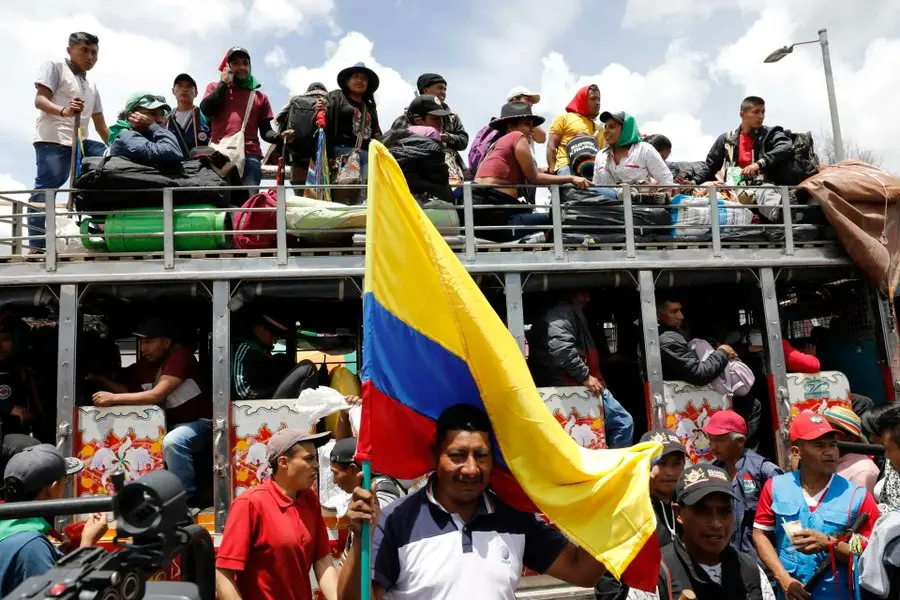Social Movements in LAC: Open Summit in Santa Marta Ahead of CELAC–EU Talks
Featured Image: Delegates gather for the opening session of the Third Social Summit of the Peoples in Santa Marta, Colombia. Photo: @teleSURtv
Protecting the Zone of Peace in the LAC
Civil society organizations from across Latin America and the Caribbean opened the Third Social Summit of the Peoples on Monday in Santa Marta, Colombia, aiming to strengthen regional dialogue and collective action on migration, sovereignty, and regional integration.
The meeting, held at the Irotama Hotel, begins a day before the Fourth Summit between the Community of Latin American and Caribbean States (CELAC) and the European Union, which will also take place in Santa Marta.
Organizers state that the summit seeks to contribute to regional peace, democratic participation, and cooperation among social movements and governments. Delegations from various countries are expected to discuss shared strategies for advancing regional integration.
The public call to the summit emphasized unity across diverse political and social backgrounds: “From within our diversity, and with the goal of strengthening regional integration, we call on you to build and participate in the Third Social Summit of the Peoples of Latin America and the Caribbean in Colombia, at a time when both the country and the continent face a historic need to defend our region as a Zone of Peace.”
Organizers highlight the importance of increased engagement within CELAC decision-making structures “from a popular, democratic, sovereign, inclusive, anti-patriarchal, and environmentally grounded perspective, with national, regional, and international projection.”
The summit also aims to develop a common agenda among social movements to support regional integration efforts and establish sustained channels of dialogue with governments. The meeting follows previous summits that sought to expand collaboration and mutual support across the region.
Working groups will address key themes, including regional sovereignty and defense; labor, migration, and rights; structural racism and historical reparations; integral agrarian reform and food sovereignty; environmental justice and climate policy; energy sovereignty; accountability for transnational corporations; and emerging financial alternatives in the Global South, including coordination with BRICS. Youth and student mobilization and children’s rights are also included in the program.
Outcomes from the Social Summit are expected to be presented and debated in parallel to the CELAC–EU Summit, situating regional social movements as active participants in shaping integration and public policy.

